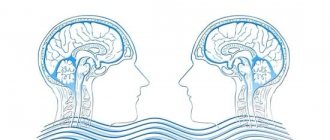We all strive to live in a logical and, most importantly, controlled world, filled with people whose motives for action are easy to read and completely understandable. But life works differently, and in most cases the words of the interlocutor are not enough to completely read him like an open book. If you want to easily characterize a person, you need to work on attribution. What this is and how to carry out psychological work, we will consider further.
In this article:
A little theoryFundamental attribution errorOther attribution errorsHow to retain attribution
A little theory
Photo by Matt Fernandes from Pexels
The concept of attribution is strongly associated with the concept of the “naive psychologist.” You yourself act as a psychologist when you have to come up with an explanation for the actions of others. In other words, you try to explain other people's actions or your own through basic experience and knowledge of possible causes.
The picture of the world with this approach is largely illusory. You must understand that the role of such a “naive psychologist” relieves you of unnecessary anxiety and possible troubles. Attribution is a method of psychological defense that allows the subconscious to actively look for familiar aspects in unfamiliar people.
Also note that there are three attribute types. This phenomenon cannot be trained, it is innate:
- perception of physical features to a greater extent (then attribution appears in a reduced form);
- greater emphasis on psychological character traits (the strongest influence of attribution);
- complex attribution - the perception of physical and psychological characteristics simultaneously.
Thanks to the classification of attribution types, it can be seen that some people tend to record physical traits to a greater extent in the process of interpersonal perception, while others perceive predominantly the psychological character traits of others. In the latter case, a wide scope for attribution opens up.
Attribution theory
Consideration of actions
It is worth saying that we do not consider all actions performed by a person. We only pay attention to the following:
- It was freely chosen, not imposed. If a person was forced to perform some action, then it cannot characterize him, because he did not decide to do it himself.
- We pay more attention to atypical results. It's better to give an example here. A man bought himself a hat. It is comfortable, looks beautiful and is cheap. Does this give you any information about this man? And if you change the conditions, let’s say he bought a beautiful hat, but it’s uncomfortable and expensive. Or ugly, uncomfortable, but cheap. In these cases, we can already draw some conclusions.
- We learn more about a person from his unusual actions. If he does the same thing as everyone else, we will be able to say very little about him. Atypical actions are the most informative.
Fundamental attribution error
In the process of interpreting the actions of others and our own, we divide the reasons into groups: internal and external. Ideally, a person with a psychological background would explain the behavior of any interlocutor and his own as a combination of external and internal factors. But in reality the situation is different: the scales of judgment are always tilted in one direction or another, depending on the basic experience.
Here are some examples that will help you better understand the essence of the phenomenon:
- I had an exam at the institute and it just so happened that the result was a bad mark. How do you explain this unfortunate misunderstanding? The questions were bad, the teacher didn’t like me, and in general the stars aligned. Next will be excuses, accusations against anyone, but not yourself;
- you were late for work, and your boss reprimanded you and deprived you of your bonus. The boss is to blame, of course, because he was the one who cut off part of your salary;
- you are overweight, and your friend brought a cake for tea. Of course, she will be to blame for the extra centimeters.
When explaining our failures, we are guided by external factors, not real ones. For example, your teaching colleague did not pass the exam. He just walked all night, didn’t study, slept during lectures. You explain his failures by internal factors for which only he is responsible.
This is attribution or its fundamental error, with the help of which you explain your successes by personal qualities (internal factors), and failures by external circumstances. At the same time, when evaluating the actions of a stranger, the phenomenon is absolutely opposite.
External attribution factors can be controlled or uncontrollable. You can pass a music exam thanks to your innate talent, or you can pass the test with flying colors only thanks to long, hard work on yourself.
Giphy
What makes us judge other people harshly, but not ourselves?
Scientists have identified several mechanisms responsible for this error.
Peculiarities of perception
From the point of view of the observer, a person is always brighter Fundamental Attribution Error and more significant than his environment. The circumstances in which the incident occurs are often perceived as background and not taken into account. When a person acts on his own, he does not see himself from the outside, but perceives his surroundings. Therefore, a participant in events first of all evaluates what is happening around, and an observer evaluates what the participant is doing.
The opinion that all people think alike
To correctly assess how much behavior is determined by the individual and how much by the situation, you need to know not only the circumstances, but also how the participant in the events perceives them.
It seems to us that everyone looks at the world exactly the same way as we do. In fact, people's reactions to the same event can vary greatly.
For example, if a person is silent in your company, you may assume that he is withdrawn. In fact, he is very sociable, he just doesn't like you. But it’s difficult to realize this because you perceive yourself differently.
Trying to control life
Our life is adjusted and directed by many circumstances, from upbringing to random events. However, constantly remembering the unpredictability of the real world is a sure way to slide into depression. Therefore, we like to think that we are in complete control of our lives.
This mechanism has a side effect: we do not take into account situations in which a person is really not to blame for anything.
This makes people blame the victims Assignment of responsibility for an accident Perceptions of strangers and acquaintance rape: the role of benevolent and hostile sexism in victim blame and rape proclivity : “It’s my own fault,” “I should have been more careful,” “ You wanted it yourself." This is how people psychologically protect themselves from the terrible thought that at any moment this could happen to them, and it doesn’t matter whether they foresee something or not.
Cultural characteristics
In the West, the independence and individuality of each person is celebrated, in the East - the community of people, their interaction in a team. Therefore, the fundamental attribution error in Western countries is more pronounced than the Fundamental Attribution Error: since a person controls his life, any events in it are not random. He gets what he deserves.
In the East they pay more attention to society, so they can evaluate not only the personal qualities of a person, but also the situation in which he finds himself.
Read ❗️
- Why do we always look for a scapegoat and blame any illness on stress?
Other attribution errors
People most often come to see psychologists and psychotherapists with a specific request: “I don’t understand him/her.” His wife, girlfriend, mother, teenage child, etc. The main problem is precisely the violation of perception according to the type of attribution. Psychologists call the attribution error when you evaluate everyone and everything through the prism of your experience.
Attribution errors are as follows:
- everything that differs from our behavior is atypical and abnormal. Therefore, if a person differs from us in behavior, then he is bad;
- If a person is not competent in the same thing as you, then he is stupid. Maybe you're great at baking pies, but your friend isn't. This does not mean at all that she is a bad housewife. But she cooks borscht wonderfully;
- ignoring experience. Each person had their own story before they met, some were born in a wealthy family, some in a poor one, some had the opportunity to get a good education, and some only graduated from school. Both people are equally likely to be good or bad.
Photo by Walid Hamadeh on Unsplash
Attribution involves a phenomenon called “labeling.” And you must get rid of this in order to learn how to build effective communications with any person.
How a mistake ruins our lives
The fundamental attribution error is responsible for many everyday disputes and incorrect conclusions. For example, a young couple quarrels because they have different views on how to spend the weekend.
The girl wants to go out and have fun with friends and accuses the guy of being “inert and boring” because he prefers to sit on the couch and watch movies.
At the same time, the girl’s working day takes place at home, where she sits alone in front of the computer, and the guy’s work includes physical activity and communication with a large number of people. Tired after a week, both want variety, and inattention to the situation leads to quarrels and accusations.
This mistake causes us to think poorly of people and be prejudiced toward strangers, lash out at innocent people, and quarrel with friends and family. A little reflection and attention to detail could prevent a lot of conflict. Why do we continue to judge other people so harshly?
Research the question











